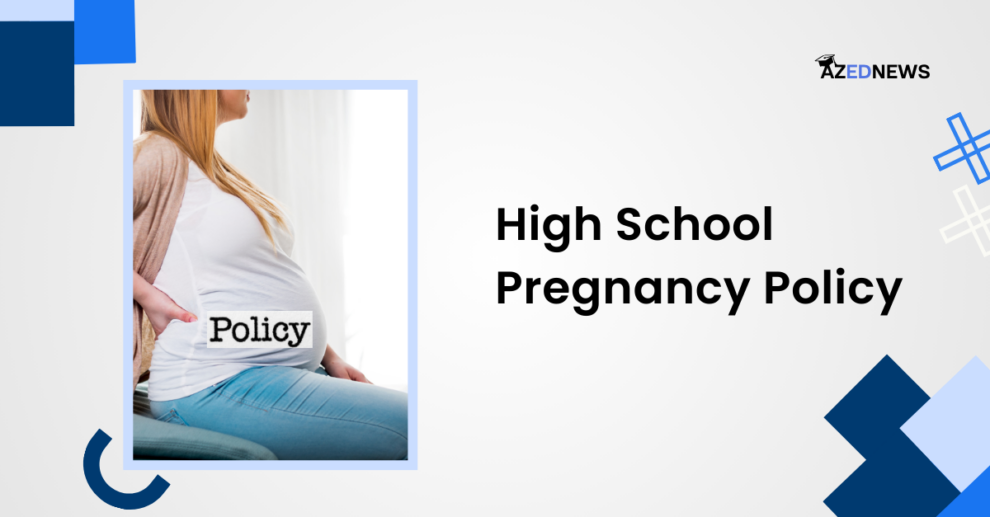While teenage pregnancy rates are declining in the United States, teenagers are still getting pregnant. High school pregnancy policy in the United States usually occurs out of wedlock and is often unintentional. The last year witnessed the numbers drop to about 13.5% per 1000 girls aged 15 to 19 which is also an all-time lowest record. As per statistics, the birth rate among Hispanic and African-American teenagers is often double that of teenagers belonging to the European-American community.
Table of Contents
Approximately 15% of all teenage pregnancies are planned. Now, the reason behind early conception could be adhering to several reasons ranging from wanting to feel grown up to wanting to take things to the next level with partners. Nevertheless, this is still frowned upon by most people since teenagers are way too young to make such decisions on their own regardless of the situation they are in.
With teenage pregnancy being a significant issue in the United States, there are various rules and provisions made for such students to ensure this does not impact their education in any way. In this blog, we have covered all the data about High school pregnancy policy.
Teen Pregnancy in the United States
The teenage pregnancy rates in the United States have been declining since 1991. Additionally, there has been a decline in the rate from 17.4 per 1000 females in 2022 to 16.7 per 1000 females in 2023. Statistically, the teenage pregnancy rate fell by 7% for girls aged between 15 to 17 years and 4% for females aged 18 to 19 years. The reasons for the decline are however not clear. It is assumed that the declines could be due to teenagers abstaining from sexual activity and more sexually active teenagers indulging in protection and birth control.
High School programs for pregnant teens
For pregnant teenagers, continuing education could seem impossible. With extreme stress about medical appointments and the future, focusing on education can be a challenge. Apart from this severe physical symptoms such as morning sickness could disrupt the routine. However, with the right education program and adequate support, women can easily balance pregnancy and education. Some popular programs are:
1. Teenager pregnant and parenting students program:
The teenage pregnant and parenting students program provides students with adequate support required to stay at high school. It aids students who are expecting or are parenting in adjusting academically, emotionally, and physically to their new situation. At each school, the program is run by professionally trained counsellors who offer health, prenatal education, and case management services.
This kind of program has the advantage of allowing pregnant teenagers to continue their studies without having to make major life changes. They can receive the additional support and information they need to have a successful pregnancy and an academic career while remaining in a familiar environment.
2. iUniversity Prep:
iUniversity Prep is a free public school that is open to residents of Texas. This program is quite popular for housing compassionate staff and imparting quality education. The teachers here are trained to teach in an online environment thus allowing students to gain an education in the comfort of their home. This school offers some face-to-face instruction, but most of the work is done at the student’s speed with regular teacher availability and check-ins. A pregnant teen who is unwell or has appointments during regular school hours can benefit from this.
3. Texas Alternative Home School:
SJRC Texas formerly known as Saint Jude’s Ranch for Children is specially for young students suffering abuse, neglect, or dealing with teenage pregnancy. Children studying in residential programs are often referred by the Texas Department of Family and Protective Services. The special program for pregnant and parenting teens provides health care services and trains young women about parenting and independent living, including job and life skills. It also imparts practical advice on raising a child.
High school pregnancy policy for teenage:
Teachers who deal with educating pregnant teens, there are a lot of things that they would have to keep in mind. Although pregnancy in teenagers is declining, it still happens. Hence, it is always advised for teachers to be informed about practices that would help them efficiently deal with pregnant teens. Some teenage pregnancy policies in high school are:
1. Legalities and safeguarding concerns:
If a student is under 16, they are considered to be under the age of consent. According to law, individuals above 16 years of age are allowed to freely engage in sexual activity. This law was implemented to protect young people from sexual abuse and exploitation. If both young people consent, there are no legal repercussions. The parents of the younger person may choose to file charges against the older person if it is consensual and the older person is over 16.
Additionally, the parents of the under-16-year-old might face legal action if they knew what was going on. A school’s safeguarding policy should address teenage pregnancy and include instructions on what steps to take and who to notify. If there are indications that the young person has been abused or exploited, an investigation may be necessary.
Pregnant students are allowed up to eighteen weeks of paid leave, which includes time spent both before and after the baby is born.
2. Confidentiality:
Even though a student may wish to keep her pregnancy private, key professors such as professors, pastoral leaders, and school courses are required to be aware of the situation from the very start. Moreover, the student will require an adult whom she can go to for support in case of questions and concerns. Some high schools allocate a buddy who could be a suitable member of the student’s group.
3. Physical safety:
Adults will know better what is and isn’t considered safe for an expectant mother and her unborn child. It is necessary to manage risks in the school environment since certain subjects and activities that children participate in may involve some level of risk.
Students who are expecting should refrain from playing contact sports and avoid beginning any new activities that they did not engage in prior to becoming pregnant.
It would be necessary to schedule extra special safety precautions around physical education classes. Another area of concern is food technology. The student should follow standard health and safety procedures in addition to avoiding foods that pose a risk if handled or consumed during the pregnancy.
4. Mental well being:
Even for adults, teenagers may find pregnancy and the postpartum period emotionally and physically taxing. If your adolescent is enrolled in school, the idea of having additional obligations and managing their changing hormones may make them feel worse.
Everyone who is involved in the student’s care must be aware of and considerate of all the difficulties she may face, including possible reactions from others upon learning of her pregnancy, fatigue that makes it difficult to finish assignments, bullying, physical changes, and postpartum depression. It’s critical to provide a secure area where your student can talk to staff members or go with a friend. Having a staff member designated as your student’s “go-to” person can also assist in handling these issues.
High School attendance rules for teen parents and pregnant teens
Unless the pregnant teen already has a high school diploma or HiSET certificate, will turn 20 years old within 60 days or the baby is less than three months old, they must be:
- In primary, middle, or high school enrolled full-time
- In a special program for teenagers called the Young Parents Program
- In the HiSET program combined with volunteer or educational classes with a total of 20 hours every week.
However, there are no exclusions from the school attendance rule except for lack of child care or vacations. If the student does not meet the school rules or does not have a good cause, the student will not be entitled to the grant of 30 days that most schools have for pregnant teenagers.
Students can avail of free childcare services. As a result, parents would not have to take care of the baby unless they want to. Some high schools also provide transport assistance at low costs.
Frequently Asked Questions
1. What happens if you are pregnant in high school?
Pregnant students who are still enrolled in high school are required to attend school unless there are valid medical reasons that abstain them from doing so. After medical approval post-delivery, students are expected to return to school.
2. How to deal with pregnancy in high school?
Although it might seem scary, it is best to discuss the issue with a parent or caregiver. You can discuss your options with them and access the health care you need.
3. Can I stay in the same school while I am pregnant or after delivery?
Yes, you have the right to stay in the same school and participate in school activities such as sports, physical education, school dances, prom events, and graduation.
4. What is the impact of teenage pregnancy in schools?
Teenage pregnancy and attendance don’t go well together since pregnancy has a detrimental effect on the education and plans of the student. This is a result of the young moms’ erratic attendance patterns and occasional dropouts from school brought on by their newfound position as parents.
5. What is the best time to get pregnant?
Restarting a family later in life may increase the risk of difficulties during pregnancy. According to experts, getting pregnant is best done in your late 20s or early 30s. The best results for you and your child are linked to this age range.
Conclusion
Education is the key to having a beautiful future for both the mother and the baby. Every pregnant teenager should be aware that they are worthy of the whole teenage experience and deserve to graduate from high school and attend college.
It is always best if the student tries to priorities their education as much as possible. Despite dealing with various hurdles, teenage pregnant students can expose themselves to quality education with the help of their high school teacher’s help.
As difficult as the journey may seem, it will come down to being worth it. With resilience and adequate assistance from parents and teachers, students can achieve their education without pregnancy being a huge hurdle in the process.












Add Comment